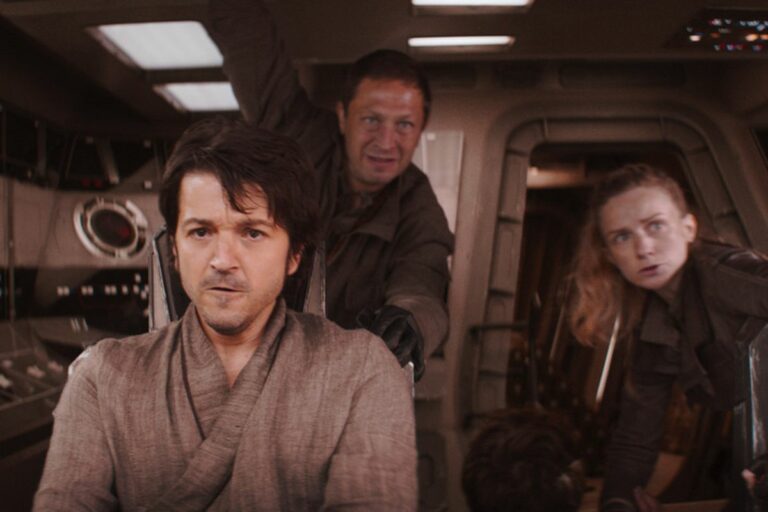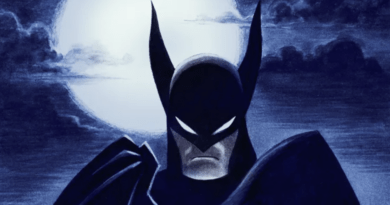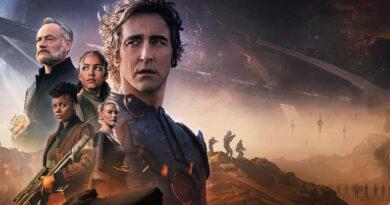
Andor Episode 6 Review
By Kieran Burt.
Andor episode 6 is out, and it delivers on the tight and well written planning episodes from the previous weeks, with a tense heist from start to finish, chaotic action political undertones, and absolutely stunning visuals. Audiences finally got to return to the Senate, and it didn’t disappoint. Diego Luna and the rest of the cast give amazing performances throughout.
Picking up right where the last episode left off, Nemik and Andor continue their discussion on ideology, and again showing that Cassiain doesn’t have one. He is apolitical, clearly not happy with the Empire, but is only doing petty acts of rebellion, theft and such like. By the end of this episode however, it’s clear this has started to change. Skeen says that he and Andor could just run off with the payroll, the selfish way out Cassian wants. But Andor has grown past that a little, shooting Skeen and thematically shooting the selfish part of himself. While not perfectly there yet – he did leave Vel – he at least didn’t rob her blind, showing a speck of comraderie has formed. Andor gets Nemik’s manifesto, hinting that Andor will eventually follow its tenets.
Start to finish, the audience feels the weight of the heist. This is of course due to the tightly plotted episodes of preparation, driving up the importance of the result. Audiences fear for the death of our characters, especially Nemik. Composer Nicholas Britell scores the episode, starting with a tense, slow piece of music, highlighting the dangers of being discovered and the fact the mission is behind schedule. Once the team enters the base, it’s replaced with an intense, fast paced piece to underscore the pressure.
This episode proves what Cassian said to Luthen in episode three. “You just walk in like you belong”, says Cassian, with this week showing that no one questioned their presence at the base, they walk right in. “They’re so fat and satisfied”, applies to this week’s antagonist, Commandant Jayhold Beehaz played by Stanely Townsend. He is literally too fat for his uniform, and when he is meeting the Colonel he is so satisfied, drinking coffee whilst looking down on the Dhanis. Townsend plays a Beezhaz with a content disposition, but his voice is dripping with malice towards the Dhanis.
When he’s jumped on by Andor and the rebels, this drops away to a frightened man. But it also applies to the rest of the garrison, who just want to laze about and play cards, or watch a festival they don’t understand. But the Imperials eventually catch wise to the fact they’re being robbed, and Andor transitions into an extremely chaotic firefight the rebels’ plan unfolds before their eyes. This show takes an approach to action rare in Star Wars, as the audience normally feel a sense of control and a sense of safety, not here.
The episode is full of political undertones. The Empire are behaving in a particular colonialist fashion, looking down at the Dhani like they’re animals, weaponizing comfort to keep them oppressed. The Empire tolerates their ceremony for now, but they will soon stop the Dhani from witnessing it, unless they are in service of the Empire. The episode explores rebels’ morality too. Unlike the Empire, Vel and the rest know the value of a life, and make a point to not kill hostages or anyone unless they’re forced to. But the rebels aren’t simply good guys unified in their perfect morality. Skeen in particular shows he doesn’t care for the mission, he just cares for the money, and Andor didn’t have to kill him.
The visuals of the Eye are stunning. It’s like the northern lights combined with a meteor shower, and the cinematographer captures the spectacle from several different angles, from the grand festival on the ground and destructive nature from above. It is some of the finest cinematography of the era, Frank Lamm, the cinematographer and his team achieved amazing work, along with the visual effects team. This is the type of work that should be on the big screen.
A quick return to Coruscant is made, and finally there’s a window into the Senate. It’s extremely different from when audiences last see it, emptier and quieter. This contrasts the full room of the Imperial Security Bureau, which is overcrowded with instruments of repression. It showcases the Imperial desire to muffle democracy for unseen and unaccountable power.
Mon Mothma is present, giving a speech about the Ghormans, and the need to safeguard their rights. But no one cares, the few senators only hear the news that the Empire has been robbed of 80 million credits. The Ghormans are extremely significant, in Rebels Mon Mothma explains that the Ghorman massacre is what prompts her to openly criticise the Empire. Andor is clearly building up to this being a major event, hopefully showing Mon Mothma’s speech condemning the Empire.
Andor delivers a tense final episode to this arc, with amazing visuals, chaotic action, political themes, and brilliant acting. Everyone involved should be proud of this episode. Hopefully the next arc will be just as good, perhaps switching up the formula the first two arcs have adopted.



